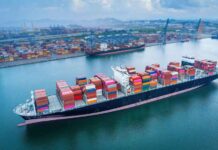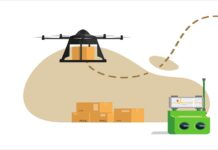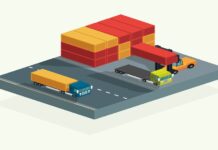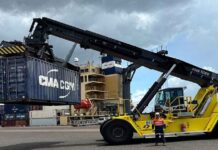In today’s fast-paced global trade environment, airfreight solutions have become essential for the quick and efficient transportation of goods across continents. The advancement of these solutions is not only a necessity for operational efficiency but also a strategic advantage in international commerce. As markets expand and the demand for swift delivery of goods increases, optimizing airfreight services becomes crucial to maintaining competitiveness in the global marketplace.
Technological Innovations Driving Airfreight Solutions
Technological advancements have revolutionized airfreight solutions, enhancing efficiency, reducing costs, and improving delivery times. One of the most significant innovations is the integration of the Internet of Things (IoT) in airfreight operations. IoT devices allow for real-time tracking and monitoring of cargo, ensuring that sensitive goods, such as pharmaceuticals, remain within the required temperature ranges throughout transit. This capability reduces the risk of damage and ensures the safe and timely delivery of critical products.
Artificial intelligence (AI) and machine learning have also transformed airfreight solutions by enabling predictive analytics to forecast demand and optimize flight schedules. These technologies help reduce fuel consumption, lower costs, and minimize environmental impact, aligning with growing global concerns about sustainability. Additionally, blockchain technology plays a key role in enhancing the transparency and security of supply chains by providing a tamper-proof system for tracking and documenting cargo movements.
For example, automated cargo handling systems are now commonly used in airports, minimizing human error and speeding up the loading and unloading processes. This automation helps maintain tight schedules and reduce delays, further improving the reliability of airfreight solutions.
Strategic Partnerships and Network Optimization
The success of airfreight solutions often depends on strategic partnerships and the optimization of global logistics networks. Collaborations between airlines, freight forwarders, and logistics service providers enable companies to create integrated networks that facilitate seamless global trade. These partnerships lead to the sharing of resources, infrastructure, and knowledge, ultimately driving efficiency and reducing operational costs.
By partnering with regional carriers, companies can extend their reach into remote locations, ensuring timely and efficient delivery even in hard-to-access areas. Hub-and-spoke models are also commonly used in airfreight solutions, allowing cargo to be consolidated and deconsolidated at central hubs. This optimizes the use of aircraft capacity and minimizes transit times, helping businesses stay competitive in the fast-paced world of international trade.
Digital platforms have become indispensable tools for managing modern supply chains, offering end-to-end visibility and enabling real-time tracking, demand forecasting, and route optimization. For example, strategic partnerships in the airfreight industry have led to the development of advanced platforms that allow stakeholders to monitor shipments, manage inventory, and streamline customs processes. These capabilities improve the overall efficiency of airfreight solutions, ensuring goods reach their destinations on time and without unnecessary delays.
Addressing Environmental Sustainability in Airfreight
As global awareness of environmental sustainability grows, the airfreight industry is adopting various initiatives to minimize its carbon footprint. One of the primary approaches involves the use of more fuel-efficient aircraft and the integration of sustainable aviation fuels (SAF). These innovations reduce carbon emissions and contribute to the development of greener airfreight solutions.
In addition to more efficient aircraft, optimizing flight routes and implementing efficient load management practices can significantly reduce fuel consumption. AI-driven algorithms help carriers identify the most efficient routes, reducing unnecessary fuel burn and emissions. On the ground, many airports are transitioning to electric ground support equipment, further decreasing the carbon emissions associated with airfreight operations.
Airfreight providers are also working toward meeting international environmental standards, such as the Carbon Offsetting and Reduction Scheme for International Aviation (CORSIA). By participating in carbon offset programs and reforestation projects, airfreight companies are demonstrating their commitment to sustainability and contributing to global environmental goals.
Ensuring Compliance and Security in Airfreight Solutions
Compliance with international regulations and maintaining high-security standards are critical components of airfreight solutions. The transportation of goods, especially hazardous materials and pharmaceuticals, is governed by stringent frameworks set by organizations such as the International Air Transport Association (IATA) and the International Civil Aviation Organization (ICAO). Adhering to these regulations ensures the safety and integrity of goods in transit.
In addition to compliance, security measures are vital for protecting airfreight shipments from theft, terrorism, and other threats. Airports employ advanced screening technologies, such as X-ray scanners and explosive trace detectors, to ensure the safety of cargo. GPS tracking devices and tamper-evident seals further enhance security throughout the supply chain, providing real-time visibility and minimizing risks.
One notable advancement in securing airfreight solutions is the adoption of electronic air waybills (e-AWB). This digital alternative to traditional paper documentation reduces the risk of fraud and streamlines administrative processes. By eliminating paper-based errors and improving document accuracy, e-AWBs enhance both security and operational efficiency in airfreight logistics.
The Future of Airfreight: Innovations and Emerging Trends
Looking ahead, the future of airfreight solutions is poised for significant transformation, driven by new technologies and emerging trends. One of the most exciting developments is the rise of unmanned aerial vehicles (UAVs), or drones, for airfreight deliveries. Drones offer the potential to deliver goods to remote or hard-to-reach areas where traditional aircraft may not be feasible, opening new possibilities for faster and more efficient logistics.
Additionally, advances in cargo plane design are set to reshape the airfreight industry. Future aircraft will feature larger capacities, improved fuel efficiency, and electric or hybrid propulsion systems, contributing to more sustainable airfreight solutions. As e-commerce continues to grow, the demand for rapid and reliable airfreight services is increasing, further driving innovation in the industry.
AI and machine learning will play an even greater role in optimizing logistics operations in the years to come. From predictive maintenance of aircraft to dynamic route planning, these technologies will enhance operational efficiency and reduce costs. Blockchain technology is also expected to revolutionize airfreight solutions by providing immutable and transparent records, ensuring accuracy and trustworthiness throughout the supply chain.
Conclusion
In an increasingly interconnected world, the role of airfreight solutions in global trade cannot be overstated. The industry is evolving rapidly, driven by technological advancements, strategic partnerships, and a growing focus on environmental sustainability. By embracing innovations such as IoT, AI, and blockchain, airfreight providers are enhancing efficiency, reducing costs, and improving the overall reliability of their services.
As international trade grows and customer demands for fast, reliable delivery intensify, the future of airfreight is poised for further innovation. Businesses that stay ahead of these trends and invest in cutting-edge airfreight solutions will be well-positioned to navigate the complexities of global logistics and maintain a competitive edge in the marketplace.

























